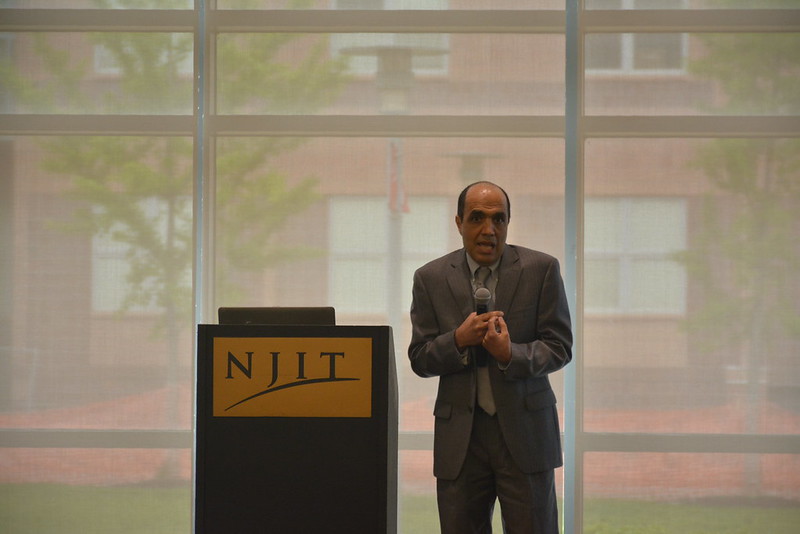
View Complete Gallery here.
The life expectancy for those living in Chad is less than 50 years. In Swaziland, 26% of the population is HIV positive. These statistics are just some indicators of a much larger global health crisis. But what possible role can technology play in addressing this crisis and what can biomedical engineers do to help? Can simply donating medical equipment from developed countries to underdeveloped regions solve the problem?
Answers to these questions were addressed in this Technology and Society Forum presentation from Dr. Mohammad F. Kiani, professor of mechanical engineering, bioengineering and radiation oncology at Temple University. The talk included examples of work being conducted by the Engineering World Health (EWH) — a U.S.-based non-profit organization of engineers, scientists and physicians “that engages the skills and passions of students and professionals from around the globe to improve healthcare delivery in low-income countries.”
Dr. Kiani discussed the organization’s current efforts to positively impact the quality of healthcare in resource-poor hospitals around the world through volunteer visits by its engineers to repair and maintain medical equipment and technological infrastructure, as well as train local engineers and technicians to maintain their own equipment.
Dr. Kiani, along with colleague Dr. Robert A. Malkin, established EWH in 2001 and continues to serve on the EWH board of directors. Kiani has served as chair of the Department of Mechanical Engineering at Temple University (2004-2014) and Department of Biomedical Engineering at the University of Tennessee Health Science Center (2003-2004). His current research focus includes the development of a technique for growing organ-like tissues using stem cells, known as “tissue-on-a-chip”, and novel methods for targeting drugs to irradiated tumors and pro-angiogenic compounds to infracted cardiac tissue.
Dr. Kiani is a Fellow of and has previously received the prestigious Established Investigator Award from the American Heart Association. Kiani received Ph.D. in biomedical engineering from Louisiana Tech University in 1990.
NJIT welcomed attendees from all area colleges, universities, and professions. This public forum qualified attendees for Professional Development Hours.
Sponsors:
Albert Dorman Honors College
John A. Reif, Jr. Department of Civil and Environmental Engineering,
Dept of Chemistry and Env Science,
Sigma Xi NJIT Chapter, and NJIT ASCE Chapter.


